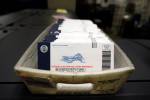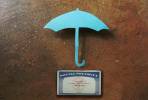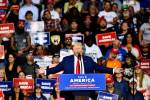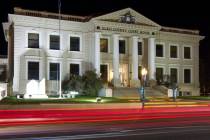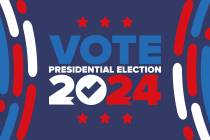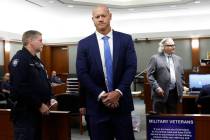Economic Forum: Nevada revenue to drop $343 million
CARSON CITY – Unless legislators extend taxes scheduled to expire July 1, state government will operate with $343 million less money in 2014-15 than it is spending during the current two-year budget period.
And even that depends on how the folks in Washington, D.C., handle the federal government’s fiscal crisis.
That was the grim but expected news that came out of Friday’s meeting of the Economic Forum, the group of five business leaders who by law determine how much tax revenue state government will have to spend during the two-year period that starts in July.
Members decided tax revenues and fees during the next budget period will come in at $5.816 billion, about 6 percent less than the current $6.159 billion.
But because Republican Gov. Brian Sandoval already has announced he supports extending for two more years some or all of $620 million in sales, business and other taxes due to expire, it’s unlikely the Legislature will adjourn in June with a mammoth budget hole.
“The Economic Forum today projected that, without the sunsetting taxes, Nevada will have approximately $5.8 billion in available revenue for the upcoming biennium,” Sandoval said in a statement. “While Nevada’s economy is improving, we have not yet turned the corner.
“My administration will review the available funding and continue to build a budget consistent with the objectives I laid out earlier this year – a budget which will rely on some or all of the revenue from the sunsetting taxes to avoid further cuts to education and cover dramatic increases to Medicaid and human service caseloads.”
If the sunset taxes are extended, there would be an about $150 million increase in the portion of tax revenue that goes to state government.
Sandoval also agreed to extend these taxes in 2011 and won the support of every Democrat and a handful of Republicans. Republican leaders said last summer they will support Sandoval’s tax extension plan.
‘FISCAL CLIFF’ FEARS
Economic Forum Chairman Ken Wiles warned that the forecast revenues could drop depending on how Congress handles the federal government’s “fiscal cliff” of automatic tax increases and budget cuts that go into effect in January unless changes are made soon.
“What happens in D.C. has an effect on consumer spending here,” said Wiles, a former Northern California professor who is managing director of Acceleron, a Las Vegas company that provides financial advice to clients. “This is the greatest period of economic uncertainty I have experienced in my lifetime.”
Like other Americans, Wiles said he read the stories of how Congress two days ago was nearing an agreement on the fiscal cliff, only to wake up Friday morning and find they are far apart.
Forum member Marvin Leavitt said that if federal taxes increase, residents will have less to spend, as will tourists visiting the state. He is a retired city of Las Vegas financial director and a legislative lobbyist for several cities in Nevada.
Leavitt also said during Friday’s six-hour hearing that the forum’s work really is “guessing – The whole thing is a guess.”
Although state government faces a shortfall without the tax extensions, the forum generally sees modest increases in existing taxes over the next two years.
Sales tax revenue is up 5.7 percent this fiscal year, and members see growth to continue at slightly more than 4 percent a year in each of the next two years.
Gaming tax revenue is up 2.6 percent this year and will climb at a 4 percent average annual rate over the next two years, it predicted.
Sales and gaming taxes make up slightly more than half of the funds going into the state’s general fund.
QUICK TURNAROUND NOT EXPECTED
Before making these estimates, Economic Forum member Linda Rosenthal asked fellow members to reject any consideration of Moody Analytics Executive Director Dan White’s prediction that the state’s economy will boom beginning 2014. Other members quickly agreed.
During a Nov. 9 hearing, White forecast a 9.9 percent sales tax growth, even saying the homebuilding business would turn around.
Rosenthal is director of treasury operations for International Game Technology in Reno.
Forum members also expressed concerns about the expected effects on state revenue of the Patient Protection and Affordable Care Act.
About 17,000 additional Nevadans earning modest incomes will be required to buy private insurance when the Affordable Care Act is implemented. Others will be covered free through Medicaid . Medicaid is the federal health care program for the poor, the disabled and some of the elderly.
Estimates are the additional people buying private insurance will pay
$18 million in state insurance premium taxes in 2014 and $27 million in 2015. The insurance tax rate is 3.5 percent.
But forum member Chris Nielsen, chief financial officer of Zappos in Las Vegas, noted that the figures “assume no other decisions by private employers.” There have been reports that some employers might stop providing insurance for employees, a step that would cause the employees to buy insurance themselves.
Forum member Michael Maddox, chief financial officer for Wynn Resorts, missed the meeting because of a family emergency.
Forum members scheduled their next meeting for May 1. The recommendations made at that time will be binding on Sandoval and legislators in the final state budget they approve in June.
Friday’s estimates must be used by Sandoval in preparing the proposed state budget that he submits to the Legislature Jan. 16.
By then, Wiles said they should better know the effects of the “fiscal cliff” and the Affordable Care Act.
Contact Capital Bureau Chief Ed Vogel at evogel@reviewjournal.com or 775-687-3901.



